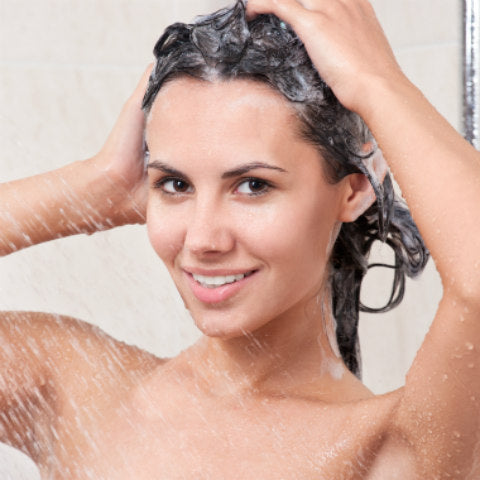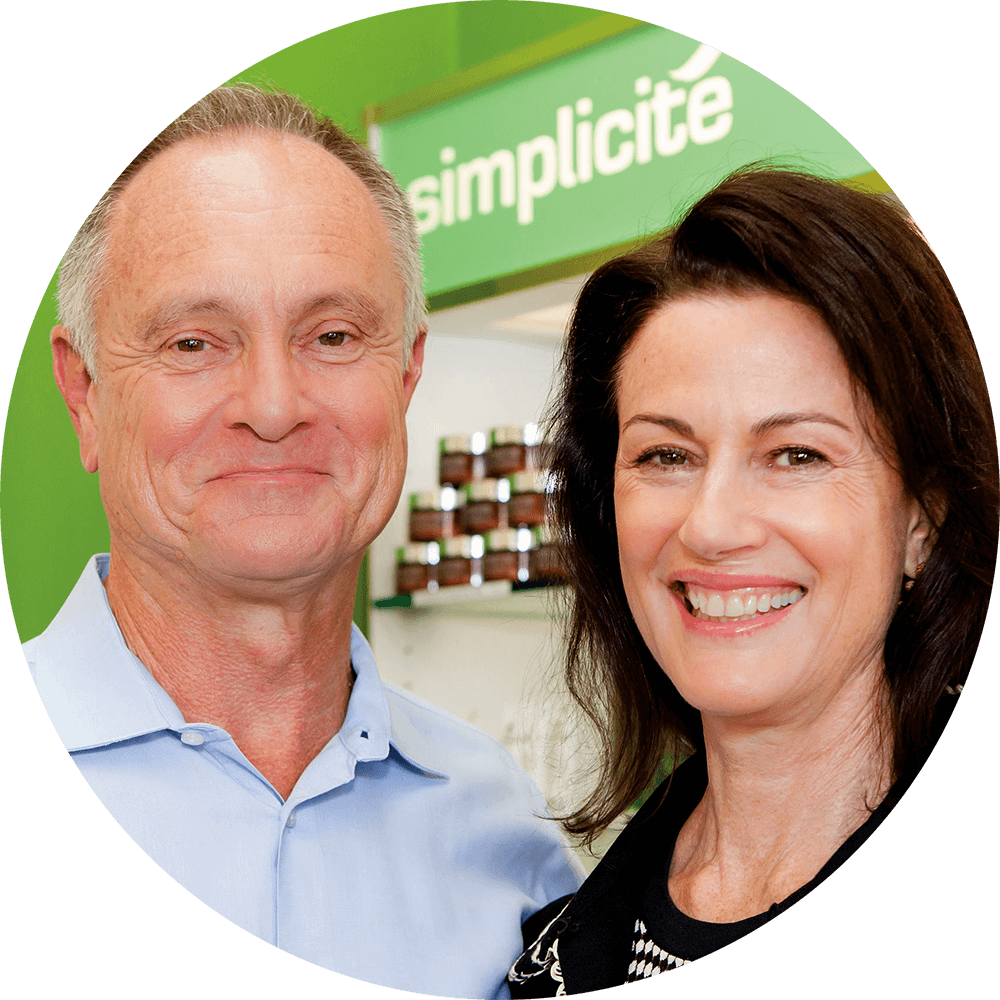Simplicité is a natural skin care brand that uses organic and highest quality ingredients in concentrations that nourish skin.
We don't use SLS (Sodium Laurel Sulfate) because it's not a high enough quality ingredient for us; also it can be drying to skin.
However, it is certainly not 'cancer causing' and the whole marketing-generated urban myth around SLS is ill-informed, internet hysteria.
Fact-checker website Snopes.com. have completely debunked the SLS myth and gave it a FALSE rating. Read the Snopes article about SLS.
"...perhaps someone in the “natural products” business deliberately created the 'SLS is dangerous' message as a way of drumming up sales."
Quote from Snopes.com(Snopes is the internet’s go-to source for discerning what is true and what is total nonsense.)
Don't confuse Laurel with Laureth
We do use the highest quality available of Sodium Laureth Sulfate in our two types of Plant Gel Cleanser and our Coastal Banksia & Sweet Orange Shampoo.
When our beautiful and gentle Laureth surfactant got mixed up in the bunfight we were appalled.
We'd never use the available 'natural' surfactant alternatives such as Decyl Glucoside because these can congest pores. (More on that below.)
We've presented general facts about SLS as we know them here.
We realise you've probably arrived at this article after reading many, many pieces of 'no sulfates' propaganda. But please read the information below and judge for yourself.
The facts
Google 'Sodium Lauryl Sulfate', and you'll find pages of negativity and untruths.
Sodium Lauryl Sulfate is perfectly safe to use as a surfactant in wash off hair and skin products. As stated above we don't use this because it can be drying to skin (which is really the fault of the low grade (cheap) quality that companies usually use).
Sodium Lauryl Sulfate is the ingredient that turns a squirt of shampoo or body wash into a smooth lather. This allows the product to cut through oil and residue and leaves hair and skin feeling clean.
1. Where the SLS internet rumour began
In 1998, a message spread around the internet that claimed Sodium Lauryl Sulfate in shampoo and toothpaste 'caused cancer'.
Snopes.com, a website that busts urban myths, looked into this claim. It found that in the 1970s, some shampoos were contaminated with small amounts of nitrosamines, which are carcinogenic.
Ethanolamine Lauryl Sulfates were to blame, and manufacturers removed the ingredient from their products.
Snopes wrote: “Perhaps someone confused Ethanolamine Lauryl Sulfate with Sodium Lauryl Sulfate”? (The two substances are entirely different.)
Snopes continued: "Perhaps someone in the ‘natural products’ business deliberately created the ‘SLS is dangerous’ message as a way of drumming up sales?
Who would do that?
Snopes says: "that since the “SLS is dangerous” message has been widely disseminated by sellers of “alternative” or “all natural” products who tout that their wares don’t contain SLS, perhaps someone in the “natural products” business deliberately created the message as a way of drumming up sales."
indeed.
2. Health experts give it the all-clear
Every day, Sodium Lauryl Sulfate and its less common, more expensive cousin Sodium Laureth Sulfate are used millions of times around the world.
In Australia, the National Industrial Chemicals Notification and Assessment Scheme has publicly stated that the current controls governing the use of this chemical in cosmetic products was adequate.
Other authorities have reached similar conclusions:
- SLS (and similar compounds) is not listed by the National Drugs and Poisons Committee.
- SLS is not listed as hazardous by the National Occupational Health & Safety Commission.
- The US Food and Drug Administration says SLS is safe (Between 1976 and 1983, the FDA received just 18 complaints about irritation caused by SLS shampoos out of an estimated 400 million applications).
- The Organisation for Economic Co-Operation & Development, the FDA, and the Cosmetics Toiletries & Fragrances Association have all asserted in scientific literature that SLS does not sensitise the skin.
- An OECD report has concluded that SLS was of no concern to the general public.
3. Claims are taken out of context
The arguments against SLS are built on evidence that has been taken out of context.
For example, the Journal of the American College of Toxicology is frequently quoted as stating that SLS causes eye or skin irritation.
The exact wording of their statement was: “The ingredients have been shown to produce eye and/or skin irritation in some human test subjects … irritation may occur in some users.”
Those two statements are not the same thing.
4. Quantity matters
Everything can be toxic if you have too much of it.
Consider these surprising facts:
- Vitamin D in human blood is five times more toxic than nicotine.
- Sunshine has the same carcinogenic status as alcohol.
- Potassium chloride is used in both throat lozenges and lethal injections.
- Vanilla beans contain acetaldehyde, a top-level carcinogen.
The safety of any ingredient depends on DOSE and DURATION - this is the takeaway message that's important here.
5. ‘Wash off’ products are not left on for hours
Workplace Australia classifies a substance as irritating if “after four hours of skin contact, irritation develops”.
Four hours of contact with most substances would prove irritating, including lemon juice, tea and red wine.
Sodium Lauryl Sulfate is no different. But since it's used in wash off products, there is no problem about having it on skin for FOUR HOURS.
6. 'Laurel' is a bay leaf
The central compound from which SLS was first made was discovered in laurel leaves (think of the laurel wreaths worn by Roman emperors).
The lauryl in Sodium Lauryl Sulfate comes from the laurel leaf, also known as bay leaf. Yes, that's the bay leaf you add to casseroles for flavour.
7. The 'natural' alternative surfactants are harsher and clog pores
At Simplicité we use premium quality Sodium Laureth Sulfate in our Plant Gel Cleansers, Body Washes and Coastal Banksia and Orange Shampoo - because we know it is safe, gentle and effective, even on sensitive skin.
We won’t use the cheaper, commonly used ‘natural’ alternatives to SLES, such as Decyl Glucoside, Sodium Cocoyl Isethionate and Sodium Cocoyl Glutamate.
They are way harsher than Sodium Laureth Sulfate and also Sodium Lauryl Sulfate!
This is because they are made in a sulphuric acid reaction and neutralised with sodium hydroxide - all of which reacts with natural sebum in skin and clogs pores.
Simplicité products work to clear congested pores and keep them clear.
The mildly foaming surfactant we use is an important part of this. We certainly don't want to use a surfactant such as Decyl Glucoside which clogs pores!
Our Sodium Laureth Sulfate is extracted from the flesh of sustainably harvested coconuts.
It comes in five grades of quality and naturally, we use the highest grade.

Simplicité uses premium quality Sodium Laureth Sulfate sourced from coconut, not petrochemicals.
We only use the very best ingredients
At Simplicité, we are passionate about the quality of our herbs and ingredients. They must be nourishing, soothing, antioxidant-rich, healing and protective and come from organically grown plants.
Scientific research dismisses SLS 'myth'
If you would like to read more about the research around SLS and SLES, here are some resources:
Cancer Myth: Toothpaste, Shampoo, Body Wash and Cancer

